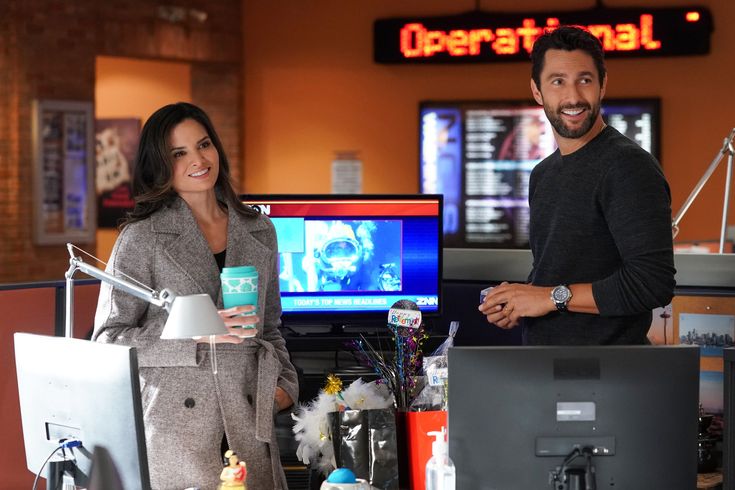
NCIS: Origins continues to surprise viewers with its clever mix of procedural drama and deep character exploration. In Season 2, Episode 6, the spotlight shifts to Randy, revealing a side of him that fans rarely see. This episode doesn’t just entertain—it pulls at the heartstrings while keeping the signature NCIS investigative edge. Let’s dive into what makes this episode a standout in the season.
Randy’s Character Arc Takes Center Stage
Randy, often seen as the lighthearted and comic relief of the team, finally gets the depth he deserves. Episode 6 skillfully balances humor with poignant moments, allowing viewers to understand the personal struggles and vulnerabilities behind Randy’s cheerful demeanor. It’s a clever narrative choice that adds layers to the character, showing that even the most upbeat personalities have their battles.
Emotional Storytelling at Its Best
This episode masterfully blends procedural drama with emotional storytelling. Through Randy’s perspective, we see the human side of the NCIS team, making the cases more than just puzzles—they become reflections of personal challenges. The writers use subtle gestures, dialogue, and flashbacks to reveal Randy’s backstory, making his emotional journey feel authentic and relatable.
The Case That Mirrors Randy’s Inner Conflict
While the team investigates a high-stakes case, Randy’s personal story mirrors the case’s complexities. The episode cleverly intertwines the investigation with his internal struggles, creating tension and emotional resonance. This dual narrative allows the audience to see Randy not only as a team player but also as someone facing profound personal challenges.
Standout Performances by the Cast
The acting in this episode deserves special mention. Randy’s actor delivers a nuanced performance, balancing humor and heartache seamlessly. The supporting cast complements him perfectly, providing emotional support in a way that feels natural rather than forced. These performances elevate the episode from standard procedural fare to something truly memorable.
Writing That Hits Close to Home
The scriptwriters deserve credit for making Randy’s story feel grounded and authentic. Dialogue is sharp yet vulnerable, giving insight into his thoughts without feeling overly expositional. Moments of levity are interspersed naturally, ensuring the episode never feels too heavy while still packing an emotional punch.
How Cinematography Enhances the Emotional Impact
Lighting, framing, and camera angles play a subtle but crucial role in this episode. Close-ups on Randy’s expressions capture every flicker of doubt, fear, or hope. The cinematography doesn’t just show action—it tells Randy’s story visually, adding depth and richness to the narrative.
Themes Explored in Episode 6
Several recurring themes stand out in this episode:
-
Resilience: Randy’s journey highlights how personal strength can be quiet yet powerful.
-
Friendship: The support of his NCIS team underscores the importance of leaning on others.
-
Identity: This episode explores how individuals can struggle with their public persona versus their private self.
These themes resonate beyond the screen, encouraging viewers to reflect on their own lives.
Humor as a Coping Mechanism
While the episode is deeply emotional, Randy’s humor remains a vital part of his character. The writers cleverly use humor as a coping mechanism, showing how laughter can exist even in difficult times. These moments make Randy relatable, reminding us that joy and sorrow often coexist.
Fan Reactions and Community Buzz
Fans have taken to social media to express admiration for Randy’s portrayal in this episode. Memorable quotes and emotional scenes are trending, sparking conversations about character development and representation. This episode is a clear reminder that character-driven storytelling resonates strongly with audiences.
Music and Soundtrack Amplify the Story
The soundtrack in Episode 6 is subtle but impactful. Emotional scores enhance poignant scenes without overshadowing the dialogue. Music cues are timed perfectly to emphasize Randy’s inner conflict, deepening the emotional impact and leaving viewers more connected to his journey.
Pacing That Keeps You Hooked
The episode maintains a brisk pace without sacrificing emotional depth. Investigative sequences are tightly scripted, and character moments are perfectly spaced, ensuring viewers are engaged throughout. This pacing is a testament to the show’s mastery in blending procedural drama with personal storytelling.
Episode Highlights That Fans Will Remember
Several moments stand out as memorable:
-
Randy’s quiet confrontation with his past.
-
Heartwarming team interactions that showcase loyalty.
-
Emotional flashbacks that reveal hidden vulnerabilities.
-
Clever investigative twists that maintain NCIS tension.
Each highlight strengthens Randy’s arc while keeping the audience invested in the case.
Comparing Randy’s Development Across Seasons
For long-time fans, Episode 6 is a turning point. Randy has evolved from a side character providing comic relief to a multi-dimensional figure whose struggles and triumphs are central to the narrative. This evolution demonstrates the show’s commitment to character growth and nuanced storytelling.
Behind-the-Scenes Insights
Rumors from interviews suggest that the writers intentionally designed this episode to challenge Randy’s character. Creative choices, from script adjustments to actor improvisation, were all aimed at showcasing his depth. These behind-the-scenes decisions pay off, resulting in a performance that feels authentic and heartfelt.

Lessons for Aspiring Writers and Fans
Episode 6 is a masterclass in character-driven storytelling. Writers can learn how to weave emotional arcs into procedural plots, and fans gain a deeper appreciation for subtle character development. It’s a reminder that even small, quiet moments on screen can have a lasting impact.
The Broader Impact on NCIS: Origins Season 2
By focusing on Randy, Episode 6 elevates the season as a whole. It proves that NCIS: Origins isn’t just about solving cases—it’s about understanding the people behind the badges. Character-driven episodes like this one enhance the show’s reputation for emotional storytelling, making viewers care about both the cases and the team.
Predictions for Randy’s Future Arc
If Episode 6 is any indication, Randy’s storyline is far from over. Fans can expect further exploration of his personal challenges and triumphs in upcoming episodes. This trajectory promises deeper emotional stakes and more opportunities for character growth.
Why This Episode Stands Out in the NCIS Universe
Compared to other episodes in the NCIS franchise, Episode 6 of Origins distinguishes itself by blending emotional depth with procedural intrigue. It’s a reminder that even in a long-running series, character-focused storytelling can make an episode unforgettable.
Conclusion
NCIS: Origins Season 2, Episode 6 is a poignant and memorable installment that shines a spotlight on Randy in a way fans have never seen before. Through exceptional acting, thoughtful writing, and clever cinematography, the episode balances emotion, humor, and suspense perfectly. Randy’s journey reminds us that even the most cheerful characters have hidden depths—and that every NCIS team member has a story worth telling.
FAQs
Q1: Why is Randy the focus in Season 2, Episode 6?
Randy takes center stage to reveal his personal struggles, giving fans a deeper understanding of his character beyond comic relief.
Q2: How does this episode differ from typical NCIS cases?
It blends procedural investigation with emotional storytelling, making character development as important as solving the case.
Q3: What makes the acting in this episode stand out?
The cast delivers nuanced performances, balancing humor and heartfelt emotion seamlessly.
Q4: Are there memorable quotes or scenes from this episode?
Yes, Randy’s reflections and heartfelt interactions with the team have sparked significant fan engagement online.
Q5: How does Episode 6 impact the overall story arc of NCIS: Origins?
It deepens character development, enhances emotional stakes, and strengthens the audience’s connection to the team.